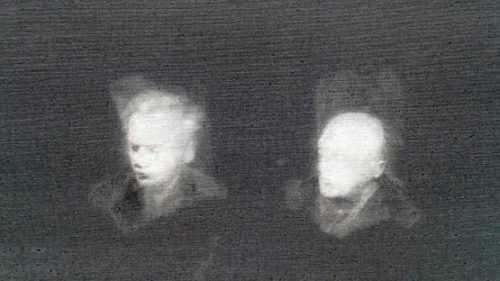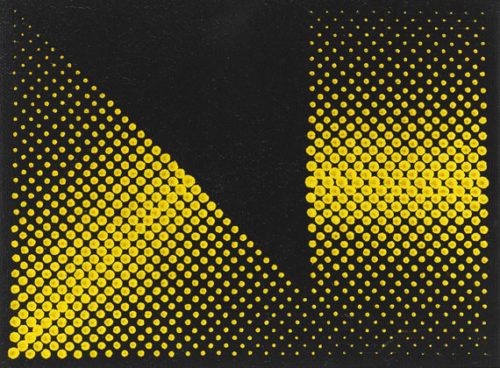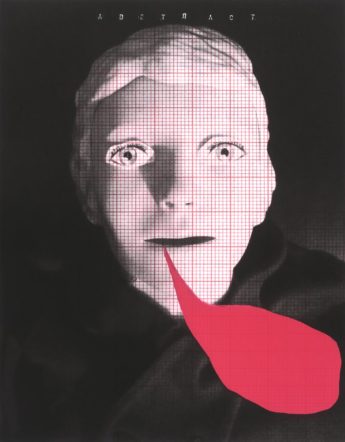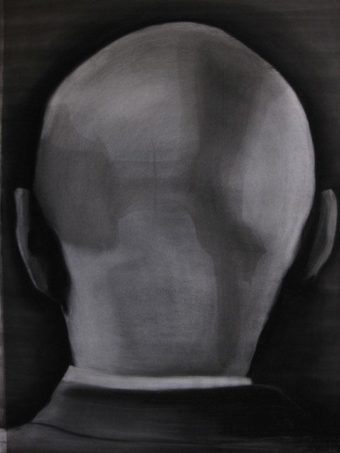
Jānis Avotiņš
“I realized then that the difference between what can happen to a human and to a naked mole rat family is mainly one of terminology.”
Bernd Heinrich (The Homing Instinct)
“We don’t utter sentences, but rather tokens of sentences. Since communication depends on what we make of the tokens of others, and communication often succeeds, we can normally assume that others mean what we would mean if we uttered those sentences.”
Donald Davidson (Truth and Prediction)
“But the most characteristic feature of the Odyssey is the way in which its personages ascribe all sorts of mental (as well as physical) events to the intervention of a nameless and indeterminate daemon or “god” or “gods.”
E. R. Dodds (The Greeks and the Irrational)
“Think of personal data as the digital record of “everything a person makes and does online and in the world.”
Personal Data: The Emergence of a New Asset Class, World Economic Forum, January 2011
“There is, in every man, an animal thus imprisoned, like a galley slave, and there is a gate, and if we open the gate, the animal will rush out.”
George Bataille et al (Metamorphosis, 1995)
I feel something significant has gone out of daily life. I am speaking of western societies, but only because I know them best. And it’s enormously difficult to articulate that which I feel has gone missing. But I shall at least try to compose some signposts pointing toward this elusive quality.
If you go to, say, Amazon and under books type in Philosophy, or Philosophy/Truth…you will get a litany of books with the phrase “post truth” in the title. It is, apparently, a post truth world now. And I have been called, among other things, a “Covid Truther”, which suggests a pathologization of the truth. If not a criminalizing of those who seek the truth. This is related to what I experience as absent in daily life. Post truth is post experience in some sense. As Cory Morningstar put it in our podcast (#25); ‘we are being reprogrammed’.

Antonio Sanfilippo
“Thirty years ago, Lewis Mumford said of post-World II development, “the end product is an encapsulated life, spent more and more either in a motor car or within the cabin of darkness before a television set.” The whole wicked, sprawling, megalopolitan mess, he gloomily predicted, would completely demoralize mankind and lead to nuclear holocaust.”
James Howard Kuntsler (The Geography of Nowhere)
The ‘Great Reset’ is, essentially, part of a vision to encapsulate the planet, at least in terms of control. And despite a population collapse, the de population adherents are keen to sterilise more and more young people, or at least coerce less reproduction. But I am getting ahead of myself here. Kuntsler’s book is a useful overview of the disastrous city and town planning that occurred after WW2.
“The two elements of the suburban pattern that cause the greatest problems are the extreme.separation of us and the vast distances between things. The idea behind the separation of uses had its origin in the nineteenth century, when industrial activity became an obnoxious nuisance to city dwellers. The first zoning codes explicitly sought to protect the property values of residential neighborhoods against such incursions. So industry was led off and given its own part of town in which to be dirty and noisy. With the advent of the car, shopping became a more or less mechanized activity-motor vehicles generated noise and fumes and cluttered up the street-so there began a trend to separate commerce from places of dwelling too. Today, of course, the idea has been carried to absurd extremes. This is why there are no corner stores in housing subdivisions, though the lack of them is a great inconvenience to anyone who would like to buy a morning newspaper or a quart of milk without driving across town. The separation of uses is also the reason why there are no apartments over the stores in the thousands of big and little shopping centers built since 1945, though our society desperately needs cheap, decent housing for those who are not rich.”
James Howard Kuntlser (ibid)

Nalini Malani
The image (and reality) of driving to work for white collar employees was one where you parked in underground garages and ate in-house. Nobody went outside the new high-rise factory. Where I grew up, in Southern California, the single most significant aspect of city space was the distance between everything. The total separation of uses. And So Cal was also the site of the perfection of industrial *parks*.
“The amount of driving necessary to exist within this system is stupendous, and fantastically expensive. The time squandered by commuters is time that they cannot spend with their children, or going to the library, or playing the clarinet, or getting exercise, or doing anything else more spiritually nourishing than sitting alone in a steel compart ment on Highway 101 with 40,000 other stalled commuters.”
James Howard Kuntsler (ibid)
Of course the more profound elements of the reprogramming are to be found in the digital revolution. There is no way to overemphasize the impact of the internet and its various platforms.

Helmut Federle
Societies of the west are increasingly demoralized. But it’s important to note that there is anger and indignation as well, only the protests against the lockdowns, for example, are simply erased by mass media. One would think people are giddy with joy at the prospect of corporate and billionaire ownership of the planet.
Now, the precursor to the specific alienation of screen habituation and what is being called techno fascism is to be found in the history Kuntsler describes.
“The consequence of losing our planning skills is the monotony and soullessness of single -use zoning which banished the variety that was the essence of our best communities. Most important, we have lost our knowledge of how physically to connect things in our everyday world, except by car and telephone.
You might say the overall consequence is that we have lost our sense of consequence. Living in places where nothing is connected properly, we have forgotten that connections are important. To a certain degree, we have forgotten how to think. “
James Howard Kuntlser (ibid)

Seth Price
This is reductive, a bit, but its basically correct. Community has been destroyed. And I, and countless others, have written a good deal about this. There can be little debate about the fact that screen life has made people less able to reason and has made, especially among the young, for a deeply alienated and lonely populace. And it has created a world of algorithmic prediction, which while far less effective than advertised, has still conditioned people to see and experience the world in certain ways. And those ways are ever more narrow.
“This unconsciousness occurs because cinema is “a technique of the imaginary,” and the imaginary is being organized and harnessed as a productive force, even as language cannot organize this imaginary. What this reasoning suggests is that the theory of the unconscious, up until very recently itself devoid of consciousness of production, has its own unconscious in mass media, or image-culture, or to speak at once historically and in a vocabulary consistent with my work here, in cinema.”
Jonathan Beller (Cinematic Mode of Production)
Beller quotes Debord at the beginning of this chapter. And it is probably worth quoting it here, too.
“The alienation of the spectator to the profit of the contemplated object (which is the result of his own unconscious activity) is expressed in the following way: the more he contemplates the less he lives; the more he accepts recognizing himself in the dominant images of need, the less he understands his own existence and his own desires. The externality of the spectacle in relation to the active man appears in the fact that his own gestures are no longer his but those of another who represents them to him. This is why the spectator feels at home nowhere, because the spectacle is everywhere.”
Guy Debord (Society of the Spectacle)
It is important to be reminded of this stuff. The technologically manufactured image realm has disrupted language (per Glodzich, also quoted by Beller). The disrupted landscape that Kuntsler outlines, the industrial parks and hermetically enclosed malls have migrated to, at least partly, the psychological realm. The psyche is being strip mined and denuded as once the landscape was.

Anthony Hernandez, photography (Los Angeles)
“Geographical incapacitation, intellectual autism, total identification with one’s genitalia, homophobia, and a general imperviousness to learning and logic are some of the central conditions of possibility for the production and reproduction of the American superstate.”
Jonathan Beller (ibid)
Now Beller is riffing off Beavis and Butthead here, but by extension he implicates a huge number of Americans. And most Americans suffer some form of this loss of curiosity, generalized autistic states for experience, and increasingly a literal and a psychological imprisonment. The algorithmic mind is the psychological equivalent of an industrial park. Or of a suburban mall.
“According to Jhally and Livant’s (1986) interpretation presented in chapter one, the attention economy is capable of generating surplus value because it produces an audience. More specifically, it produces the attention time of an audience. This attention time is then sold to advertisers, hence creating profit. In the age of the Internet and BIG DATA, besides producing an audience, the attention economy produces meta-information, which allows segmenting that audience into a series of ‘blocs of attention’ (Beller 2006). Furthermore, the attention economy uses this meta-information to merge the spheres of production, distribution and consumption and to regulate the production of commodities. In this way, the attention economy makes it possible to turn information into a source of what Deleuze and Guattari have defined as machinic surplus value.”
Claudio Celis Bueno (The Attention Economy)

Almir Mavignier
Running through the popular or kitsch realm of AI is pseudo religious quality. AI is now written about as if it were a Marvell comics version of Homer.
“These cyberneticians turn science and technology into secular iterations of what was formerly known as soul. It is not surprising that David Noble has contended that the enchantment with technology is “rooted in religious myths and ancient imaginings.” In this new domain, science can empirically deliver the transcendence that religion could only speculate about, offering practical solutions rather than mere narrative salves for the fear of human temporality. For example,Ray Kurzweil quite deliberately entitles his prophecy for computer intelligence The Age of Spiritual Machines.”
Allistair Brown (Daemonic Fictions)
This is the stuff that serves to mystify the entire public discourse around AI and by extension The Great Reset. Lacan saw discontinuity as the foundational feature of the unconscious (as it is first experienced). And this touches on something else that is perhaps the most essential feature of this current demoralization, and that is the disruption of narrative.
“Though the idea of character and narrative being spliced together from discontinuous fragments is clearly a presupposition of filmmaking shortly after its origins in 1895, it is also a discovery and indeed a “truth” of psy- choanalysis. Take, for example, the role of the organization of the drives in identity formation. As Lacan says, “If there is anything resembling a drive, it is a montage” .”
Jonathan Beller (ibid)

Thomas Zipp
Cinema as the dominant form of cultural expression is strangely an inherently psychoanalytic medium. It mimics, to some degree anyway, the formation of dreamwork. Through over-determination and displacement the dream thoughts and content re-arrange themselves. Without going into this (again) the point here is that (per Beller) what gets displaced is the sense of cinema itself and its emergent powers.
“With the increasing forms of discontinuity and rupture emerging through the simultaneous historical development of mechanization, perception, and capital itself, new forms for the imposing of continuity are created that modulate and indeed extend the shattering of reality into fragments by capitalized machinery—among them (and in addition to the commodity and psychopathology) Marxism, psychoanalysis, and cinema. In the cases of commercial cinema and of psychoanalysis, at least, it is probably fair to say that these orchestrations of discontinuity as continuity are predominantly forms of mediation for putting the Humpty- Dumpties of capital back together again.”
Jonathan Beller (ibid)
Cinema mimics the unconscious, or vice versa, through montage. But again, the point here is that capitalism imposes its own narrative (continuity) on history, and on contemporary events. The constant and now obvious propaganda apparatus of the the state and global capital is reaching a new crisis of disruption. Hollywood product today feels barely coherent, and the continuity it provides is fragile. And it was Adorno who pointed out that modernism was expressing a disfigured world, a disenchanted world. And cinema became not a machine for enchantment (as Hollywood keep advertising itself) but a machine of disenchantment.

Nathalie Daoust , photography.
Here we reach the reality of saturation. Something Beller points to as well. The battle in the unconscious (if battle is the right word) between word (poetics, narrative) and image is now one taking place between image and fragmented gibberish. Displacement is interrupted, all dream work becomes unbalanced in a sense.
“The structure of objective images achieved by our technological innovations brings about a new relation: photographs coincide with the world to the point of denying themselves as images, but the world they make present to us is imaginary…”
Wlad Godzich (Language, Images and the Postmodern Predicament)
We are dreaming cinema. Nature becomes images of nature. And there is precious little narrative accompaniment. This is one of the key sources of our contemporary malaise. The enclosing of the world, literally, is happening as the psyche is being partly erased, literally. The psyche which now lacks the discourse of the Other. The acute experience of loneliness in the midst of crowds is, during this lockdown experiment, a loneliness while being alone, a new register of alone however. For that is one of the paradoxes in play — an aloneness without solitude.

Lynne Cohen, photography.
And this connects to the manufacturing of the audience. And of the observer.
“…a reorganisation of the observer occurs in the nineteenth century before the appearance of photography. What takes place from around 1810 to 1840 is an uprooting of vision from the stable and fixed relations incarnated in the camera obscura […] what occurs is a new valuation of visual experience: it is given an unprecedented mobility and exchangeability, abstracted from any founding site or referent.”
Jonathan Crary (Suspensions of Perception: Attention, Spectacle, and Modern Culture)
Beller suggests the world as experienced as the ‘to be filmed’. And on a more prosaic level the lockdowns are being both presented as and experienced as TV. They are presented as a mini-series. A limited (maybe, unless they prove too popular) series. And there is, in an almost comical way, a very Lacanian aspect to the mask wearing aspect. And if the ruling class gets their wish, the vaccination protocols will resemble the new papers of transport. But the mask carries with it a huge amount of symbolic baggage. It is both a muzzle and a form of chastity belt. It is keeping intimacy at bay. And this fits in well with the entire sex negative dimension of the pandemic experiment.

Bice Lazzari
My suspicion is that the space of theatre, the empty stage, was a natural evolutionary invention. That was the subjective space of trauma. This is, in some way or other, primal space. And the subject narrated, or re-narrated the primal stories connected to and predicated upon psychic development in and/or on this stage. The screen does not do this. The screen prevents one, actually, from the search for the offstage. The screen can create something like an unconscious but it is an unconscious ‘effect’. Now, looked at one way, that is not really very different, or different at all. For the unconscious is only recognized by the self, and only fleetingly, through effects …or affects.
But on another level altogether, the disenchantment that one experiences today is also about another register of desire. A longing for a contemplative beauty that I associate with the infinite. And I think this explains something of the sudden uptick in the interest of Other Minds. With animal intelligence. It is, of course, also a intuitive protective impulse against the intrusion of the screen, and with data mining, surveillance, and the new architectures of control. There is renewed interest in deep space exploration. With the images sent ‘home’ by the various Voyagers.
“What seems beautiful to me, what I should like to write, is a book about nothing, a book dependent on nothing external, which would be held together by the strength of its style, just as the earth, suspended in the void, depends on nothing external for its support; a book which would have almost no subject, or at least in which the subject would be almost invisible, if such a thing is possible.”
Gustav Flaubert (letter to Louis Colet, 1852)
Even before the lockdown experiments there was an acute sense of claustrophobia running through western culture. That is my sense anyway. Some of this can be explained, for urban dwellers anyway, with all the forces that encouraged one to simply stay home; traffic, policing, surveillance, expense, and the fact that the general climate cutting across society was increasingly hostile and angry. It was non specific in large measure. People are anxious, their lives ever more precarious, and they are afraid. There is a counter trend to this, too. In many areas people have never wanted more to outside, to see people, to socialize. I think that is a minority however. But many more have taken to the countryside, to remote homesteading locations. The desire to start over is pressing, is urgent almost. The impulse is to escape — from bad relationships or marriages, from bad jobs, from destructive groups or business partners. One must escape, it is a near ubiquitous symbol and metaphor today. But the structural elements serve to make that ever more difficult.

Jupiter and Juno. Photograph from Voyager 2. NASA.
The figure of the exile has become the figure of the trapped, the prisoner, the implicated. The period of late capitalism saw the increasing monopolization, the incessant insider trading on Wall Street, and in general a sort of three card monte version of itself. But the Reset is, as Molly Klein pointed out, a closing of the markets. It is the controlled demolition of market capitalism. However this might or might not work out, the idea is about enclosure. But its no longer viable to move people *to* the prison, so better to just build a prison around the people. This is the new cyber panopticon — it is perhaps the primary goal for AI. But its important to question whether any of this will work. I rather think it won’t. Robotics, and automation, are great for stacking boxes of Cheezits or Lego Xmas sets, but its not as efficient when trying to follow people or track them. If you watch Hollywood you would think it was entirely effective. It simply is not. Facial recognition still doesn’t really work. But the global elite know this. They know there will be tens of thousands of mistaken identities put in various forms of house arrest, sent to FEMA camps, or denied transport papers, or vaccination certificates. Who cares. Meanwhile…the great de-population agenda will be the main focus for those looking to complete the purchase of Earth.

Alessandro Piangiamore
“Algorithmic governmentality moves us away from classical statistical populations towards the populations of relationships that inhabit an individual, a behaviour, an imminent deed. These relationships are reduced to computable units capable of being plugged into the algorithm’s syntax. The individual’s singularity is thus reduced to a particular syntaxical arrangement of traces that can be represented and modulated accordingly. This is not to say that the individual can be equated to an algorithm, but that thinking, representing, intervening and governing algorithmically produces certain effects and transformations on what it means to be a “subject”.
Tyler Reigeluth (Surveillance and Society)
Here is the problem with Reigeluth’s idea, those algorithms are hugely imperfect, and the subject that, theoretically, is being created is uncertain. And the description is puerile, to some degree. Its mystification, to a degree.
Also, that subject is, by necessity, pathological. It is no doubt true that marketers gain a certain effectiveness in selling shit to people, or grabbing their attention — but those goals are based on repetition. If someone searched online for a red leather men’s shoes, they will be see stories and articles and ads for red leather, for shoes, for men in shoes, etc, for months….even if they only wanted to know something unrelated about red shoes. So yes these strategies have limited effectiveness, and I am aware this is a crude example — and no doubt they help train people to repeat forms of the same desire. The algorithm creates the subject that will be the more effective recipient for more strategies. But not entirely. And perhaps not really as often as is imagined by the creators of AI. The desire for escape is partly, or largely, the escape from an algorithmic self that looms as a toxic doppleganger behind your screen. The bespoke algorithmic self is claustrophobic and suffocating. The desire to escape a bad relationship superimposes over the escape from algorithmic conditioning.

Guy Debord
But I want to return, briefly, to this idea of image and the disruption of narrative, or language. Lacan made a rather profound point about there always being an economic body behind the painter. But you can substitute filmmaker, or sculptor. It was once the Church, or aristocratic patronage. Beller gets into this a bit. But I am thinking along another avenue in looking at today’s fine arts makers. It feels completely understandable, for reasons I don’t entirely understand, to *want* a rich patron to fund my work. That this is preferable, in a hypothetical sense, from selling my paintings on the open art market for millions. Better to have the Church behind me…or whoever, a billionaire. Some of this has to do with sado-masochism, but also with disenchantment and its entanglement with the narcissism of the digital prisoner. But it is not just the economic factor. There is something else, something elusive in the sense of medieval society, as the contemporary subject imagines it anyway, that exerts an enormous fascination, and I cannot explain if further except to say that the longing for the infinite that is in one way expressed by deep space photos, or deep ocean, or by climbing the highest mountains…is both kitsch self narrative, AND spiritual in some legitimate sense.
The disenchanted world denies piety, certainly. And on a deep psychic level, there exists an intuition in people (its not awe or wonder, which I will return to) when looking at, say, photos of Jupiter. An intuition that this is how we present theatre space, too. Voyager 2 travels past Juno, one of Jupiter’s moons. THAT is a play.
There is something in this intuitive search for the infinite that is also a process of psychic cleansing, I suspect.

Susan Leopold
Beller quotes Lacan..
“What is it that attracts and satisfies us in trompe-l’oeil? When is it that it captures our attention and delights us? At the moment that the representation does not move with the gaze and that it is merely trompe-l’oeil. For it appears at that moment as something other than it seemed, or rather it now seems to be that something else. The picture does not compete with appearance, it competes with what Plato designates for us beyond appearance as being the Idea. It is because the picture is the appearance that says it is that which gives the appearance that Plato attacks painting, as if it were an activity competing with his own. “
Jacques Lacan (Four Fundamental Concepts of Psychoanalysis)
This is also true, to some degree, with super-realism. Now one of the curious contradictions with Beller is that he has terrible taste in cinema. Pasolini seems the exception, although I’m not sure his use of Pasolini has anything to do with an appreciation of his films. The use of Barton Fink is typical. There are worse filmmakers than the Cohn brothers, but none as bad in exactly the way they are bad. So, there is something to be discovered in the ways in which taste circulates (or doesn’t). Now before anyone complain to me that taste is subjective. etc etc etc etc etc., I can assure you it is not. It is not entirely objective, but there is such a thing as good taste, as an elevated sense of appreciation, a deeper sense of appreciation. I digress here…but if someone said (as students used to) that The Godfather trilogy was the towering masterpiece of its era. I would classify such a remark as borderline middlebrow, petit bourgeois and probably the product of film being more of a hobby than an object of study. If someone said, oh, my favorite filmmaker is Kurosawa, I would think, OK, film literate but still sort of middlebrow and boring. If that person said John Ford, I would think, OK, went to film school and at least can grasp why Ford is important. If that person said I adore Jean Marie Straub…I would want to discuss film more with him or her. For you don’t get to Straub by way of Coppela. You have to work to get to Straub.

The Chronicle of Anna Magdalena Bach (Jean Marie Straub and Danielle HJuillet dr.)
Oddly enough Straub’s last film, or one of his last, is France Against Robots. One of the pull quotes from the film is “A world gained for technology is lost for liberty”. But I digress. The issue is that sense of malaise that I feel most people are experiencing right now. Ive said to people, ‘I can’t shake it…this generalized angst’…or something like that. Others have said similar things to me. And we all know, or sense anyway, that this is the re-programming. It has been incremental, gradual (less gradual lately) but it has accrued. And if there is a note of optimism in all this it is that this accruing has allowed for a sort of automatic negation of much of what we are assaulted with. It is both unconscious negation, and a conscious version. It is almost as if without the *Other*, without a discourse, the psyche can only shrink so far. The ruling class are shooting themselves in the foot as it were. The selling of a pandemic, I think they are discovering, has hidden emergent consequences. The manufacturing of the algorithmic captive is not seamless.
Now, Lazzarato and others are not quite right, though, when they say there is no *I* in so called control societies. There is just as much an I as there ever was. But this is that sort of confusion one finds in many Lacanians and certainly in many post modernists. There is always some kind of unifying element. The dissolution of subjectivity is more metaphor than reality. And it is metaphorically correct, but that is on the level of myth, really. And so we return to the Greeks again. And this strikes me as a fundamental problem with a lot of AI theorizing. To be clear, it is true that subjectivity has shrunken or eroded, but it must always exercise some unity on our senses, or we would all be barking mad and locked in padded cells. Additionally there is always the faintest whiff of class condescension at work in much academic theory today. It is never MY subjectivity that has disappeared.

Bas Louter
There is, or seems to be, a way in which a surplus unconscious is spilling over the edge of the psychic container. I know these are clumsily articulated ideas and examples — but this seems to be partly the lesson of Beller if you follow his logic to the end. It may well be Deleuze’s too. Our consciousness is not an algorithm — our brain not a machine. And while those two things can help shape the contemporary populace, they do not totally eradicate the human. The unbalancing of dreamwork has also created spaces of awakened dissatisfaction.
“Spiders have the capacity to provoke within us a sense of the nonsense of sense, of the fragility of order and form. Of uncertain, changeable shape and size, spiders are generally still yet are capable of rapid movement, and each one is surprisingly distinctive in appearance – unlike the insects and flies they devour. Insects too provoke terror, pollute space and populate nightmares; they defy human notions of scale and number, hence the biblical terror of the plague of locusts.”
William Pawlett (Bataille, Sacred and Society)
This is a remarkably insightful observation. Those things which defy our notions of scale and number, those things are often also uncanny in their appearance to us, but the defiance of Nature still exists, and the sense of infinity that accompanies a plague of locusts is rooted deep in our reptilian brains, it is the inheritance from ancestors that lived in caves. The monetizing of nature (as Cory Morningstar described The Great Reset) is not the same thing as nature itself — or to put it another way, the extension of capitalist practice is an economic reality and it shapes consciousness and in furthering the grand project of owning the planet — but it is not actual, it is not reality. Or maybe it is better to say it is an aspect of reality, but there are others. It is actual, but only on the terms of the ruling class. And the current sense of unreality is to be battled and rejected in part by returning to aesthetic integrity. Culture needs to be re-radicalized.
To donate to this blog use the Paypal button at the top of the page. This also goes to supporting Aesthetic Resistance here. https://soundcloud.com/aestheticresistance

Soul.
Minus divine connotations.
Thanks for another thought-provoking essay.
This sparked some memories and feelings that I thought I would share, although they may be trivial. I do feel this face mask thing is in many ways the most disturbing trend I’ve been confronted with, I mean apart from the fact that they are useless. I can’t stop wondering what is going through peoples minds when they follow idiotic directives that do so much harm.
I have never worn the mask. Thankfully I live in a state and city that has never tried to enforce this silly ritual. Some mornings I wake up after vivid dreams (I don’t think I ever wake – up – screaming–) and I make my coffee and I feel life to be normal, and then I get in my car and I pass people out for a walk and they are wearing masks and this unreality we are living in comes back to me all too strongly. I have a business where I interact with the public a lot and more than 80% of my customers and almost all my vendors have been wearing masks for months. Some are delighted when they see me not wearing a mask but then they will politely ask me if it is ok to take theirs off. I suppose this is because many businesses require it or have posted signs. I have gone about my business pretty much without incident and accept the stares and disdain of the brainwashed, and if a restaurant asks me to put on a mask to walk 20 feet to a table I just turn around and walk out.
I have only had one standoff on the masks. This was around Thanksgiving. I have an annual tradition of meeting friends in another city for the holiday and I stay at one of my favorite historic (this one is truly historic and quirky) fancy hotels in that city. I have been staying at this hotel for years and always have been treated extremely well, and some of the staff remember me when I return. So I walk in around midnight after driving several hours and I literally had given no thought to the mask thing. I was very tired. The lobby was immaculate as usual except there was not a soul there. Did not see any employees or guests. So I go to check in at the desk as I have numerous times – though with impressive new heavyweight plexiglass at the counter and barriers to make sure you keep your distance– and after a few minutes this imposing young man walks out and greets me abruptly like this was a convenience store and then launches into his script about having to wear a mask and cites the city mandate and the hotel’s policy. I always knew this day would come but it was still so jarring to have this hotel clerk act in such a supercilious manner – police, judge, jury. I’m used to them being so excessively polite and accommodating and this young man relished this grandstanding. The only thing he cared about when he saw me was that I was not wearing a mask. So then he offers me a mask from a box and I looked at him and then down at these paper face nappies and since I was motivated to get to my comfy room, I took one out of the box and looked at it like it was alien and just held it for a while he was placated enough to move ahead with checking me in. I waited for further instruction and he went through the normal stuff and gave me my room key card, speaking in a clipped manner. I headed to the elevator and dropped the mask in the bin. Last year there were so many people talking about plastic straws being the worst thing in the world, but these masks are apparently environmentally safe and don’t pose a threat to shorebirds or whatever.
The memory that got triggered when thinking about the generalized autism and great reset was a time when I attended a party at Bill and Melinda Gates’ house, probably in the year 2007. It was a non-profit-related event with maybe 300 guests and we were able to go anywhere except of course their 10k sq ft private quarters. Whenever I see or read about BillG I always go back to this time when I was walking down this very long corridor trying to find someone and I was by myself. Way up ahead of me I see BillG walking towards me and he is alone. Seemingly a long time goes by and we’re both walking pretty fast. As I get closer to him I turn towards him and slow down and make eye contact and start to say something. He doesn’t break stride, full steam ahead, looking straight ahead as if I wasn’t there. I immediately got a chill in my spine. We were the only people in this long, long hallway and I had met him before but I’m sure he didn’t remember or know who I was, or maybe he did and he knew I was a nobody. I used to be in a field where I had to interact with people in the top 1% frequently and with only a few exceptions was treated very well and kindly. This is the one time when I felt absolutely rudely disregarded.
thanks
Hey John,
Riffing here on the themes of space and dis/connection (as per Kuntlser quote near the top), and the effects of various kinds of technology on the psyche and how the world is processed and meaning is made…
I’ve been reading a history of information technology and just finished a chapter on the history of the telegraph and Morse code and how they were invented in tandem with developments in steam technology and harnessing electricity. One thing that is emphasized about the telegraph is how it collapsed and challenged people’s sense of time and space. What I find fascinating is imagining what it would be like to conceptualize the world that way and I wonder how many people today could stretch their imaginations to contemplate the ramifications of that. For example, in the early-mid 1800’s there was no instantaneous communication. In fact, one of the greatest dangers of the new steam engine technology were train crashes caused by lack of fast communication: there was no way to quickly and easily communicate between stations as to when trains were arriving and leaving. People LIVED the space and time it took to communicate. Space and time existed on a very material, physical level. I might argue, it was far more embodied. As telegraphy became more popular there were stories of how a citizen would take their message and see it hung on the hook by the telegraphist and then become upset that their message hadn’t been “sent” because they could still see it hanging there. It was a huge psychological leap to disassociate the message from the material it was written on.
The telegraph slayed distance and it compressed time. I haven’t entirely thought this through but it seems to me that a huge aspect of various technologies’ affects on the human body and psyche have to do with how those technologies organize time and space (i.e. montage) to create meaning or a relationship/connection with the world. As noted above, the dominant car culture and separation of work from home from amenities, and the separation of classes into different neighbourhoods, are all achievable with fast-paced communication.
Another curious thing about the invention of the telegraph were the primary motives behind it: first to report on wars and battles won and lost (Napoleon’s France), another motivating factor was commerce and stock trade–instantaneous communication could make someone a fortune. A very capitalist enterprise, this telegraph… It also changed policing: someone committing murder in London had less of a chance of running away safely to an outlying town as news of him and his actions would arrive to his refuge before he did.
Further, the form of the telegraph emphasized the commodification of communication, of time, and the deterioration of language and manners. Every letter printed cost money to send. It was not economically feasible for people to address their communications with “dearest” or to wish them well. For economy’s sake, these communications had to be short and pithy. The alphabet was commodified. And this, I think, is something that has great psychological repercussions that are insidious and hard to notice while they are happening. I think we are seeing the same thing today with massive text-messaging and constant carrying around of cellphones. These seemingly harmless activities are adjusting and reinforcing certain values and perceptions of self and reality, often in ways so insidious they are hard to see (which you often observe on this blog).
Another curious thing about the telegraph and how it altered forms of communication as it pared down the “flowery” sentences and pleasantries and collapsed time from weeks to receive a letter to mere moments–is the shorthand coding that people began to use in order to save more money or to keep their correspondence secret from being read by telegraphists or deliverers. People began to use strings of four letters to stand for whole sentences (in today’s world we have the same thing: LOL = laugh out loud). The interesting thing that science historian, Glieck points out about this is that short forms, though more economically and materially efficient, are far less accurate at communicating and far more prone to error. He points out that a huge part of language and communication is: redundancy. Poetic or flowery or descriptive language is not only communicating on an affective level, it also provides more context and detail so that if parts of the message are missed or not understood, the meaning can still be conveyed as it is repeated and amplified through the details (or sometimes actual repetitions). This describes our speech more than our writing these days. How many times in conversations are things repeated, either verbatim or in slightly different words? People do it with stories too, providing context to their main idea. These aren’t just ways of connecting with each other or emphasizing something importat: redundancy and repetition play a role in accurate communication. Our DNA is like that too. There are all sorts of redundancies in DNA codes. What good is that? Well, if something gets fucked up and a nucleotide gets swapped for another one during a transcription process, there’s a higher chance the protein being made can still function healthily….we’re less susceptible to getting sick (i’m over-simplifying here).
I find this idea of shorthand communication as tied to economics, efficiency and time as really fascinating given how it seems to suggest a strong correlation between monetary value, moral value, aesthetics, and the nature of communication. I hear it happening all the time today: someone writes a facebook comment, it is misinterpreted and then everyone hates each other. Does Twitter leave all that much room for repetition and redundancy? For descriptive language? Have people lost their patience to sit down and write and contemplate and think about what they want to say and who their audience is? What happened to those beautiful letters that I read in the epistolary sections of a George Elliot novel? I still hand write letters. I take time to describe the weather at the time of writing even though my recipient likely won’t get the letter for a week and all that will have changed–something else is conveyed in the time I take to find the words and look outside my window and consider my recipient and what they care about and what I wish to tell them. Anyway, what I want to emphasize here is that the detriment of doing away with detailed or “poetic” language in telegraph messages, texts, tweets and headlines does not simply have consequences that are aesthetic (i.e. yeah, yeah i know you love me and see beauty in the world but lets get down to business…), but that these short hands both affect moral values AND accuracy of transmission of meaning.
I do not have a cellphone and i never have. I don’t have any social media and never have. I have never had a TV. I have a computer that is so outdated I cannot use any chat apps on it (i.e. zoom). And every once and a while, especially with younger generations, I get a profound sense that I experience reality differently from other folks. I think it does have to do with my perception of space and time. I notice this with planning. A lot of people have trouble planning to meet up with me because I don’t have technology that gives them the kind of immediacy they get with other friends who always have their cellphone on. If you call my landline, I might be on a walk and then get groceries and not check my messages until the evening. “What if there is an emergency and I need to reach you?” someone once said…then there is an emergency, and you reach out, and we connect when we do. I can’t really think of any times in my 34 year life that someone has called me in an emergency (not sure what good I would be anyway). And also, we’re kind of always in an “emergency” these days, and i’m pretty sure me having social media and a phone isn’t going to save the world, or anyone…. I fail to see logic here where it seems people do see logic. How many times have I been blamed when I’ve waited 45 minutes for a friend to show up at a meeting place and the friend says: you wouldn’t have needed to wait if you had a cellphone and I could have texted you I was running late…
It’s okay…i’m sorry you’re feeling rushed and hassled. You made it. Take your time to settle in; we’re here together now. I had time and patience to wait; that’s why i’m still here…
the repetition aspect is significant, I think. That seems a natural aspect of speech, especially when talking ‘to’ someone specifically…one reiterates. But that reiteration while providing context is also an expression of this repetition compulsion we all have. Which may indeed be evolutionarily necessary. I don’t know. But great comment. And more to say…but yes Im rushed…..but i miss you.
Where It’s At
Joshua Merworitz 1985 “No Sense of Place”trumps (!) A.
Ramirez’ sonorous revelations about Morse’s untimely
electromagnetic horizon can openers, from my solid angle window.
When Nikita arrived in Amerika, during the late 50’s, looking
no more threatening than a travelling shoe salesman with
a jovial grandfatherly grin, the phenomena undermined the
Pentagon’s periled lebensraum narrative, for instance. Different
waves of communication change the stage, the settings, & our
identities.
On a strange aspect of infinite spiders, I once had to replace
a 40 Amp breaker inn my townhouse, when, upon lifting the Breaker
Enclosure box, I noticed a huge red & blue spider hovering
in the wall directly in front of my seating, shaking hands.
Yes, I smashed It hard with my wrench to a smeared Death. It was
in some way the entangling spirit of the technology that has
become our guiding light since after the Medieval plague.
On a more seasonal path, I wish each of you, the best Xmas of
yer lives & my strong gratitude to John for his mind blowing
insights, especially turning me on to “The Wholeness of Nature” in
his “The Mechanical Soul”.
Regino
Re calla
After I first read Dracula, having seen tens of film and TV versions (the Louis Jourdan PBS Dracula made an impression on me as an adolescent, what with all the stringy mucus from fang to female neck), it felt like something was off in Van Helsing’s back and forth from England to the Netherlands. Too quick it seemed for the technology of the time. I’m sure this isn’t original but Stoker seems to be struggling with the onset of new technologies, and the manipulation of and control of time. The Christian cross isn’t a religious symbol but an ancient tool in the hands of Indiana Jones, everything reduced to science, meaning reduced to objects to manipulate, including time. Time locked in a coffin, immortality a medical problem.
good take. I think that is likely correct re: stoker. Have you read http://knarf.english.upenn.edu/Articles/moretti.html